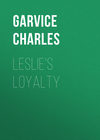Loe raamatut: «Only a Girl's Love»
CHAPTER I
It is a warm evening in early Summer; the sun is setting behind a long range of fir and yew-clad hills, at the feet of which twists in and out, as it follows their curves, a placid, peaceful river. Opposite these hills, and running beside the river, are long-stretching meadows, brilliantly green with fresh-springing grass, and gorgeously yellow with newly-opened buttercups. Above, the sunset sky gleams and glows with fiery red and rich deep chromes. And London is almost within sight.
It is a beautiful scene, such as one sees only in this England of ours – a scene that defies poet and painter. At this very moment it is defying one of the latter genus; for in a room of a low-browed, thatched-roofed cottage which stood on the margin of the meadow, James Etheridge sat beside his easel, his eyes fixed on the picture framed in the open window, his brush and mahl-stick drooping in his idle hand.
Unconsciously he, the painter, made a picture worthy of study. Tall, thin, delicately made, with pale face crowned and set in softly-flowing white hair, with gentle, dreamy eyes ever seeking the infinite and unknown, he looked like one of those figures which the old Florentine artists used to love to put upon their canvases, and which when one sees even now makes one strangely sad and thoughtful.
The room was a fitting frame for the human subject; it was a true painter's studio – untidy, disordered, and picturesque. Finished and unfinished pictures hung or leant against the walls, suits of armor, antique weapons, strange costumes littered the floor or hung limply over mediæval chairs; books, some in bindings which would have made the mouth of a connoisseur water, lay open upon the table or were piled in a distant corner. And over all silence – unbroken save by the sound of the water rushing over the weir, or the birds which flitted by the open window – reigned supreme.
The old man sat for some time listening to Nature's music, and lost in dreamy admiration of her loveliness, until the striking of the church clock floated from the village behind the house; then, with a start, he rose, took up his brushes, and turned again to the easel. An hour passed, and still he worked, the picture growing beneath the thin, skillful hand; the birds sank into silence, the red faded slowly from the sky, and night unfolded its dark mantle ready to let it fall upon the workaday world.
Silence so profound took to itself the likeness of loneliness; perhaps the old man felt it so, for as he glanced at the waning light and lay his brush down, he put his hand to his brow and sighed. Then he turned the picture on the easel, made his way with some little difficulty, owing to the litter, across the room, found and lit an old briar-wood pipe, and dropping into the chair again, fixed his eyes upon the scene, and fell into the dreamy state which was habitual with him.
So lost in purposeless memory was he, that the opening of the door failed to rouse him.
It was opened very gently and slowly, and as slowly and noiselessly a young girl, after pausing a moment at the threshold, stepped into the room, and stood looking round her and at the motionless figure in the chair by the window.
She stood for full a minute, her hand still holding the handle of the door, as if she were not certain of her welcome – as if the room were strange to her, then, with a little hurried pressure of her hand to her bosom, she moved toward the window.
As she did so her foot struck against a piece of armor, and the noise aroused the old man and caused him to look round.
With a start he gazed at the girl as if impressed with the idea that she must be something unsubstantial and visionary – some embodiment of his evening dreams, and so he sat looking at her, his artist eye taking in the lithe, graceful figure, the beautiful face, with its dark eyes and long, sweeping lashes, its clearly penciled brows, and soft, mobile lips, in rapt absorption.
It is possible that if she had turned and left him, never to have crossed into his life again, he would have sunk back into dreamland, and to the end of his days have regarded her as unreal and visionary; but, with a subtle, graceful movement, the girl threaded the maze of litter and disorder and stood beside him.
He, still looking up, saw that the beautiful eyes were dim, that the exquisitely curved lips were quivering with some intense emotion, and suddenly there broke upon the silence a low, sweet voice:
"Are you James Etheridge?"
The artist started. It was not the words, but the tone – the voice that startled him, and for a brief second he was still dumb, then he rose, and looking at her with faint, trembling questioning, he answered:
"Yes, that is my name. I am James Etheridge."
Her lips quivered again, but still, quietly and simply, she said:
"You do not know me? I am Stella – your niece, Stella."
The old man threw up his head and stared at her, and she saw that he trembled.
"Stella – my niece – Harold's child!"
"Yes," she said, in a low voice, "I am Stella."
"But, merciful Heaven!" he exclaimed, with agitation, "how did you come here? Why – I thought you were at the school there in Florence – why – have you come here alone?"
Her eyes wandered from his face to the exquisite scene beyond, and at that moment her look was strangely like his own.
"Yes, I came alone, uncle," she said.
"Merciful Heaven!" he murmured again, sinking into his chair. "But why – why?"
The question is not unkindly put, full, rather, of a troubled perplexity and bewilderment.
Stella's eyes returned to his face.
"I was unhappy, uncle," she said, simply.
"Unhappy!" he echoed, gently – "unhappy! My child, you are too young to know what the word means. Tell me" – and he put his long white hand on her arm.
The touch was the one thing needed to draw them together. With a sudden, yet not abrupt movement, she slid down at his side and leant her head on his arm.
"Yes, I was very unhappy, uncle. They were hard and unkind. They meant well perhaps, but it was not to be borne. And then – then, after papa died, it was so lonely, so lonely. There was no one – no one to care for me – to care whether one lived or died. Uncle, I bore it as long as I could, and then I – came."
The old man's eyes grew dim, and his hand rose gently to her head, and smoothed the rich, silky hair.
"Poor child! poor child!" he murmured, dreamily, looking not at her, but at the gloaming outside.
"As long as I could, uncle, until I felt that I must run away, or go mad, or die. Then I remembered you, I had never seen you, but I remembered that you were papa's brother, and that, being of the same blood, you must be good, and kind, and true; and so I resolved to come to you."
His hand trembled on her head, but he was silent for a moment; then he said, in a low voice:
"Why did you not write?"
A smile crossed the girl's face.
"Because they would not permit us to write, excepting under their dictation."
He started, and a fiery light flashed from the gentle, dreamy eyes.
"No letters were allowed to leave the school unless the principals had read them. We were never out alone, or I would have posted a letter unknown to them. No, I could not write, or I would have done so, and – and – waited."
"You would not have waited long, my child," he murmured.
She threw back her head and kissed his hand. It was a strange gesture, more foreign than English, full of the impulsive gracefulness of the passionate South in which she had been born and bred; it moved the old man strangely, and he drew her still closer to him as he whispered —
"Go on! – go on!"
"Well I made up my mind to run away," she continued. "It was a dreadful thing to do, because if I had been caught and brought back, they would have – "
"Stop, stop!" he broke in with passionate dread. "Why did I not know of this? How did Harold come to send you there? Great Heaven! a young tender girl! Can Heaven permit it?"
"Heaven permits strange things, uncle," said the girl, gravely. "Papa did not know, just as you did not know. It was an English school, and all was fair and pleasant outside – outside! Well the night just after I had received the money you used to send me each quarter, I bribed one of the servants to leave the door open and ran away. I knew the road to the coast and knew what day and time the boat started. I caught it and reached London. There was just enough money to pay the fare down here, and I – I – that is all, uncle."
"All?" he murmured. "A young, tender child!"
"And are you not angry?" she asked, looking up into his face. "You will not send me back?"
"Angry! Send you back! My child, do you think if I had known, if I could have imagined that you were not well treated, that you were not happy, that I would have permitted you to remain a day, an hour longer than I could have helped? Your letters always spoke of your contentment and happiness."
She smiled.
"Remember, they were written with someone looking over my shoulder."
Something like an imprecation, surely the first that he had uttered for many a long year, was smothered on the gentle lips.
"I could not know that – I could not know that, Stella! Your father thought it best – I have his last letter. My child, do not cry – "
She raised her face.
"I am not crying; I never cry when I think of papa, uncle, Why should I? I loved him too well to wish him back from Heaven."
The old man looked down at her with a touch of awe in his eyes.
"Yes, yes," he murmured; "it was his wish that you should remain there at school. He knew what I was, an aimless dreamer, a man living out of the world, and no fit guardian for a young girl. Oh, yes, Harold knew. He acted for the best, and I was content. My life was too lonely, and quiet, and lifeless for a young girl, and I thought that all was right, while those fiends – "
She put her hand on his arm.
"Do not let us speak of them, or think of them any more, uncle. You will let me stay with you, will you not? I shall not think your life lonely; it will be a Paradise after that which I have left – Paradise. And, see, I will strive to make it less lonely; but" – and she turned suddenly with a look of troubled fear – "but perhaps I shall be in your way?" and she looked round.
"No, no," he said, and he put his hand to his brow. "It is strange! I never felt my loneliness till now! and I would not have you go for all the world!"
She wound her arms round him, and nestled closer, and there was silence for a space; then he said:
"How old are you, Stella?"
She thought a moment.
"Nineteen, uncle."
"Nineteen – a child!" he murmured; then he looked at her, and his lips moved inaudibly as he thought, "Beautiful as an angel," but she heard him, and her face flushed, but the next moment she looked up frankly and simply.
"You would not say that much if you had seen my mamma. She was beautiful as an angel. Papa used to say that he wished you could have seen her; that you would have liked to paint her. Yes, she was beautiful."
The artist nodded.
"Poor, motherless child!" he murmured.
"Yes, she was beautiful," continued the girl, softly. "I can just remember her, uncle. Papa never recovered from her death. He always said that he counted the days till he should meet her again. He loved her so, you see."
There was silence again; then the artist spoke:
"You speak English with scarcely an accent, Stella."
The girl laughed; it was the first time she had laughed, and it caused the uncle to start. It was not only because it was unexpected, but because of its exquisite music. It was like the trill of a bird. In an instant he felt that her childish sorrow had not imbittered her life or broken her spirit. He found himself almost unconsciously laughing in harmony.
"What a strange observation, uncle!" she said, when the laugh had died away. "Why I am English! right to the backbone, as papa used to say. Often and often he used to look at me and say: 'Italy has no part and parcel in you beyond your birth, Stella; you belong to that little island which floats on the Atlantic and rules the world.' Oh, yes, I am English. I should be sorry to be anything else, notwithstanding mamma was an Italian."
He nodded.
"Yes, I remember Harold – your father – always said you were an English girl. I am glad of that."
"So am I," said the girl, naively.
Then he relapsed into one of his dreamy silences, and she waited silent and motionless. Suddenly he felt her quiver under his arm, and heave a long, deep sigh.
With a start he looked down; her face had gone wofully pale to the very lips.
"Stella!" he cried, "what is it? Are you ill? Great Heaven!"
She smiled up at him.
"No, no, only a little tired; and," with naive simplicity, "I think I am a little hungry. You see, I only had enough for the fare."
"Heaven forgive me!" he cried, starting up so suddenly as almost to upset her. "Here have I been dreaming and mooning while the child was starving. What a brainless idiot I am!"
And in his excitement he hurried up and down the room, knocking over a painting here and a lay figure there, and looking aimlessly about as if he expected to see something in the shape of food floating in the air.
At last with his hand to his brow he bethought him of the bell, and rang it until the little cottage resounded as if it were a fire-engine station. There was a hurried patter of footsteps outside, the door was suddenly opened, and a middle-aged woman ran in, with a cap very much awry and a face startled and flushed.
"Gracious me, sir, what's the matter?" she exclaimed.
Mr. Etheridge dropped the bell, and without a word of explanation, exclaimed – "Bring something to eat at once, Mrs. Penfold, and some wine, at once, please. The poor child is starving."
The woman looked at him with amazement, that increased as glancing round the room she failed to see any poor child, Stella being hidden behind the antique high-backed chair.
"Poor child, what poor child! You've been dreaming, Mr. Etheridge!"
"No, no!" he said, meekly; "it's all true, Mrs. Penfold. She has come all the way from Florence without a morsel to eat."
Stella rose from her ambush.
"Not all the way from Florence, uncle," she said.
Mrs. Penfold started and stared at the visitor.
"Good gracious me!" she exclaimed; "who is it?"
Mr. Etheridge rubbed his brow.
"Did I not tell you? It is my niece – my niece Stella. She has come from Italy, and – I wish you'd bring some food. Bring a bottle of the old wine. Sit down and rest, Stella. This is Mrs. Penfold – she is my housekeeper, and a good woman, but," – he added, without lowering his tone in the slightest, though he was evidently under the idea that he was inaudible – "but rather slow in comprehension."
Mrs. Penfold came forward, still flushed and excited, and with a smile.
"Your niece, sir! Not Mr. Harold's daughter that you so often have spoken of! Why, how did you come in, miss?"
"I found the door open," said Stella.
"Good gracious me! And dropped from the clouds! And that must have been an hour ago! And you, sir," looking at the bewildered artist reproachfully, "you let the dear young thing sit here with her hat and jacket on all that time, after coming all that way, without sending for me."
"We didn't want you," said the old man, calmly.
"Want me! No! But the dear child wanted something to eat, and to rest, and to take her things off. Oh, come with me, miss! All the way from Florence, and Mr. Harold's daughter!"
"Go with her, Stella," said the old man, "and – and," he added, gently, "don't let her keep you long."
The infinite tenderness of the last words caused Stella to stop on her way to the door; she came back, and, putting her arms around his neck, kissed him.
Then she followed Mrs. Penfold up-stairs to her room, the good woman talking the whole while in exclamatory sentences of astonishment.
"And you are Mr. Harold's daughter. Did you see his portrait over the mantel-shelf, miss? I should have known you by that, now I come to look at you," and she looked with affectionate interest into the beautiful face, as she helped Stella to take off her hat. "Yes, I should have known you, miss, in a moment? And you have come all the way from Italy? Dear me, it is wonderful. And I'm very glad you have, it won't be so lonely for Mr. Etheridge. And is there anything else you want, miss? You must excuse me for bringing you into my own room; I'll have a room ready for you to-night, your own room, and the luggage, miss – "
Stella smiled and blushed faintly.
"I have none, Mrs. Penfold. I ran – I left quite suddenly."
"Dearie me!" murmured Mrs. Penfold, puzzled and sympathetic. "Well, now, it doesn't matter so long as you are here, safe, and sound. And now I'll go and get you something to eat! You can find your way down?"
"Yes," Stella said. She could find her way down. She stood for a moment looking through the window, her long hair falling in a silky stream down her white shoulders, and the soft, dreamy look came into her eyes.
"Is it true?" she murmured. "Am I really here at home with someone to love me – someone whom I can love? Or is it only a dream, and shall I wake in the cold bare room and find that I have still to endure the old life? No! It is no dream, it is true!"
She wound up the long hair and went down to find that Mrs. Penfold had already prepared the table, her uncle standing beside and waiting with gentle impatience for her appearance.
He started as she entered, with a distinct feeling of renewed surprise; the relief from uncertainty as to her welcome, the kindness of her reception had already refreshed her, and her beauty shone out unclouded by doubt or nervousness.
The old man's eyes wandered with artistic approval over the graceful form and lovely face, and he was almost in the land of dreams again when Mrs. Penfold roused him by setting a chair at the table, and handing him a cobwebbed bottle and a corkscrew.
"Miss Stella must be starving, sir!" she said, suggestively.
"Yes, yes," he assented, and both of them set to work exhorting and encouraging her to eat, as if they feared she might drop under the table with exhaustion unless she could be persuaded to eat of everything on the table.
Mr. Etheridge seemed to place great faith in the old port as a restorative, and had some difficulty in concealing his disappointment when Stella, after sipping the first glass, declined any more on the score that it was strong.
At last, but with visible reluctance, he accepted her assertion that she was rescued from any chance of starvation, and Mrs. Penfold cleared the table and left them alone.
A lamp stood on the table, but the moonbeams poured in through the window, and instinctively Stella drew near the window.
"What a lovely place it is, uncle!" she said.
He did not answer, he was watching her musingly, as she leant against the edge of the wall.
"You must be very happy here."
"Yes," he murmured, dreamily. "Yes, and you think you will be, Stella."
"Ah, yes," she answered, in a low voice, and with a low sigh. "Happier than I can say."
"You will not feel it lonely, shut up with an old man, a dreamer, who has parted with the world and almost forgotten it?"
"No, no! a thousand times no!" was the reply.
He wandered to the fireplace and took up his pipe, but with a sudden glance at her laid it down again. Slight as was the action she saw it, and with the graceful, lithe movement which he had noticed, she glided across the room and took up the pipe.
"You were going to smoke, uncle."
"No, no," he said, eagerly. "No, a mere habit – "
She interrupted him with a smile, and filled the pipe for him with her taper little fingers, and gave it to him.
"You do not want me to wish that I had not come to you uncle?"
"Heaven forbid!" he said, simply.
"Then you must not alter anything in your life; you must go on as if I had never dropped from the clouds to be a burden upon you."
"My child!" he murmured, reproachfully.
"Or to make you uncomfortable. I could not bear that, uncle."
"No, no!" he said, "I will alter nothing, Stella; we will be happy, you and I."
"Very happy," she murmured, softly.
He wandered to the window, and stood looking out; and, unseen by him, she drew a chair up and cleared it of the litter, and unconsciously he sat down.
Then she glided to and fro, wandering round the room noiselessly, looking at the curious lumber, and instinctively picking up the books and putting them in something like order on the almost empty shelves.
Every now and then she took up one of the pictures which stood with their faces to the wall, and her gaze would wander from it to the painter sitting in the moonlight, his white hair falling on his shoulders, his thin, nervous hands clasped on his knee.
She, who had spent her life in the most artistic city of the world, knew that he was a great painter, and, child-woman as she was, wondered why the world permitted him to remain unknown and unnoticed. She had yet to learn that he cared as little for fame as he did for wealth, and to be allowed to live for his art and dream in peace was all he asked from the world in which he lived but in which he took no part. Presently she came back to the window, and stood beside him; he started slightly and put out his hand, and she put her thin white one into it. The moon rose higher in the heavens, and the old man raised his other hand and pointed to it in silence.
As he did so, Stella saw glide into the scene – as it was touched by the moonbeams – a large white building rearing above the trees on the hill-top, and she uttered an exclamation of surprise.
"What house is that, uncle? I had no idea one was there until this moment!"
"That is Wyndward Hall, Stella," he replied, dreamily; "it was hidden by the shadow and the clouds."
"What a grand place!" she murmured. "Who lives there uncle?"
"The Wyndwards," he answered, in the same musing tone, "the Wyndwards. They have lived there for hundreds of years, Stella. Yes, it is a grand place."
"We should call it a palace in Italy, uncle."
"It is a palace in England, but we are more modest. They are contented to call it the Hall. An old place and an old race."
"Tell me about them," she said, quietly. "Do you know them – are they friends of yours?"
"I know them. Yes, they are friends, as far as there be any friendship between a poor painter and the Lord of Wyndward. Yes, we are friends; they call them proud, but they are not too proud to ask James Etheridge to dinner occasionally; and they accuse him of pride because he declines to break the stillness of his life by accepting their hospitality. Look to the left there, Stella. As far as you can see stretch the lands of Wyndward – they run for miles between the hills there."
"They have some reason to be proud," she murmured, with a smile. "But I like them because they are kind to you."
He nodded.
"Yes, the earl would be more than kind, I think – "
"The earl?"
"Yes, Lord Wyndward, the head of the family; the Lord of Wyndward they call him. They have all been called Lords of Wyndward by the people here, who look up to them as if they were something more than human."
"And does he live there alone?" she asked, gazing at the gray stone mansion glistening in the moonlight.
"No, there is a Lady Wyndward, and a daughter – poor girl."
"Why do you say poor girl?" asked Stella.
"Because all the wealth of the race would not make her otherwise than an object of tender pity. She is an invalid; you see that window – the one with the light in it?"
"Yes," Stella said.
"That is the window of her room; she lies there on a sofa, looking down the valley all the day!"














